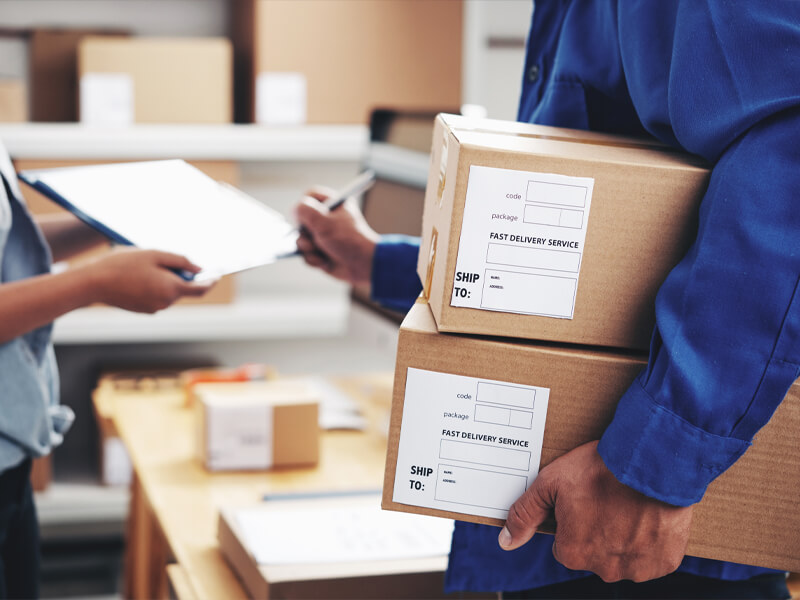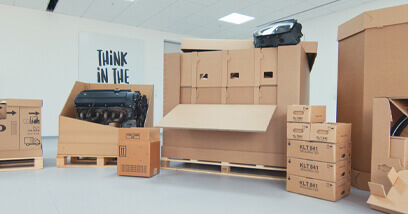Discover the Relevance of Industrial Product Packaging Recycling: Expert Insights
In today's industrial landscape, packaging plays a critical duty in shielding and preserving items during transportation. However, the environmental effect of industrial product packaging can not be neglected. It is vital to recognize the significance of reusing industrial product packaging to alleviate the negative consequences on our world. In this discussion, we will explore the specialist insights on this subject, discovering the advantages of recycling industrial product packaging, expert ideas for effective recycling, the challenges involved, and the future potential customers and innovations in this field. By recognizing the relevance of commercial product packaging recycling, we can contribute to a much more lasting and green future.
Ecological Influence of Industrial Product Packaging

An additional environmental effect of commercial product packaging is the depletion of natural sources. The production of packaging materials requires significant amounts of energy, water, and raw materials.
Recycling programs must be carried out to guarantee that industrial product packaging materials are diverted from land fills and given a 2nd life. By resolving the environmental impact of industrial packaging, we can move in the direction of a more accountable and lasting method to product packaging and add to the preservation of our world for future generations.
Advantages of Recycling Industrial Product Packaging
Recycling industrial product packaging supplies numerous benefits, both for the setting and for organizations looking for to take on lasting methods. Among the key advantages of recycling is the reduction in waste sent to land fills. By recycling product packaging materials such as cardboard, plastics, and steels, companies can lessen their environmental impact and conserve valuable resources.
Recycling industrial packaging likewise aids to preserve energy. Additionally, reusing lowers greenhouse gas emissions linked with the production of new product packaging materials.
An additional advantage of reusing industrial product packaging is the potential for price financial savings. By applying recycling programs, organizations can lower garbage disposal costs and potentially create earnings by marketing recyclable materials. Recycling can also improve a firm's public photo and attract environmentally mindful customers that value lasting methods.
Furthermore, reusing commercial packaging can add to a circular economic climate. By recycling materials and including them back right into the production process, companies can produce a closed-loop system that minimizes the requirement for virgin materials and promotes resource effectiveness.
Expert Tips for Effective Industrial Packaging Recycling
To maximize the efficiency of industrial product packaging recycling, expert understanding and approaches are essential. Industrial packaging is created to shield products during transport and storage, and reusing it can aid reduce waste and conserve sources. Here are some professional tips for effective industrial packaging recycling:
Style for recyclability: When picking product packaging materials, consider their recyclability. Prevent utilizing blended materials or intricate packaging styles that are challenging to different and reuse.
Apply a recycling program: Establish a detailed recycling program that includes clear guidelines for sorting and getting rid of of product packaging materials. Inform staff members concerning the relevance of recycling and supply appropriate training on exactly how to recycle properly.
Partner with recycling centers: Collaborate with regional reusing facilities to recognize their acceptance requirements and demands. Establish a connection with a check these guys out dependable recycling companion who can handle your industrial product packaging waste successfully.
Minimize product packaging waste: Check out methods to decrease packaging waste by utilizing ingenious layout strategies, such as lightweight products and right-sizing packaging. By reducing the quantity of packaging utilized, you can lower the environmental effect and make reusing easier.
Track and measure recycling initiatives: Monitor and gauge your recycling initiatives to evaluate the effectiveness of your program. Establish objectives and targets for increasing recycling prices and continuously boost your recycling approaches based upon the information gathered.
Challenges in Industrial Packaging Recycling
One of the major difficulties encountered in industrial product packaging recycling is the lack of standardized reusing techniques and facilities. Unlike home recycling, where there are clear guidelines and systems in area, commercial product packaging reusing often lacks a regular method. industrial packaging solutions. This lack of standardization makes it tough for services to navigate the recycling procedure successfully and efficiently
Industrial packaging is commonly made from a wide array of materials, such as plastics, metals, and composite products. Some commercial product packaging materials, such as laminated plastics, are not conveniently recyclable, leading to raised waste and environmental impact.
Additionally, the large quantity of commercial packaging waste can be overwhelming. Industries create a considerable quantity of product packaging waste every day, and discovering suitable recycling facilities to manage this quantity can be an overwhelming job. This can result in product packaging products being sent to landfill as opposed to being recycled.
Furthermore, the absence of awareness and education regarding industrial packaging recycling is an additional obstacle. Lots of companies are not fully familiar with the benefits of reusing their product packaging materials or the readily available recycling options. This absence of awareness leads to a missed chance to lower waste and add to a more lasting future.
To get over these obstacles, it is important for services to work together with recycling companies, federal government companies, and sector associations to establish standard reusing approaches and facilities. This will certainly not only enhance the recycling process however also ensure that more packaging products are diverted from garbage dumps and recycled correctly. Additionally, increasing understanding and offering education and learning regarding commercial packaging recycling can help businesses recognize the significance of reusing and make informed choices regarding their packaging choices.
Future Potential Customers and Innovations in Industrial Product Packaging Recycling
With the difficulties of standardized techniques and facilities in commercial product packaging recycling, the focus now moves towards checking out ingenious remedies and future prospects to deal with these concerns. As the need for sustainable product packaging continues to grow, the market is seeing advancements in innovation and processes that intend to enhance reusing prices and decrease ecological effect.
One appealing future possibility is the advancement of smart product packaging products. These materials are made to have installed sensors that can provide details concerning their structure and condition. By utilizing these sensors, recyclers page can conveniently identify and arrange various types of packaging products, making the recycling process much more cost-effective and reliable.
An additional innovative service is using innovative recycling technologies. Conventional recycling techniques commonly encounter obstacles in properly reusing complex product packaging materials, such as multi-layered plastics. Advanced innovations, such as chemical recycling and pyrolysis, can break down these materials right into their basic elements, enabling a greater price of recycling.

Verdict
By reusing commercial product packaging, businesses can profit from expense savings, minimized waste, and boosted brand photo. The future prospects of commercial packaging recycling are promising, with improvements in innovation and advancements intended at improving reusing performance and reducing waste.
Recycling programs must be carried out to guarantee that commercial packaging materials are drawn away from landfills and given a 2nd life. By attending to the environmental effect of industrial packaging, we can move in the direction of an extra accountable and sustainable approach to product packaging and add to the preservation of our earth for future generations.
Decrease packaging waste: Discover means to minimize packaging waste by utilizing cutting-edge design methods, such as lightweight materials and right-sizing packaging. Furthermore, elevating recognition and offering education and learning concerning commercial packaging recycling can aid services understand the relevance of reusing and make educated decisions about their product packaging choices.
Conventional recycling approaches often deal with challenges in efficiently reusing complicated packaging products, such as multi-layered plastics.